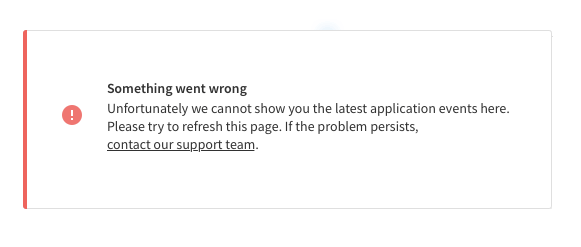
Error displaying the error page
error interval
If you are the website owner, try upgrading your server to support ECDHE and disable DHE. If ECDHE is not available, you can disable all DHE cipher algorithm sets and use plain RSA.
If you are the owner of this website, try configuring your server to use TLS 1.2 and TLS_ECDHE_RSA_WITH_AES_128_GCM_SHA256 instead of RC4. RC4 is no longer considered secure. If you cannot disable RC4, check that other ciphers than RC4 are enabled.
This message will be displayed if the link you have opened takes you to a website with a slightly different name than the site you usually visit. Chrome will ask you if you want to go to the website you usually visit.
margin of error
If the market research project were a movie, sampling error and other errors would be the villains. They can creep into an idyllic scene and sow chaos and doubt, to the point of undermining the credibility of all results. Fortunately, there are several ways to avoid or reduce these common problems.
To understand this type of error, you first need to know a little about sampling and what it means in survey research (if you already know all about sampling, skip to the next section).
When conducting research, you are usually interested in finding out what a much larger group of people think than it is possible to contact. The practical solution is to take a representative sample, that is, a group that represents the entire population.
Despite what it might suggest, the term “sampling error” does not mean that researchers have made mistakes in selecting or working with a sample. In reality, problems such as choosing the wrong people, allowing bias, or not anticipating which participants will self-select or not respond to the survey are not sampling but of another type. We will discuss the different types of errors later.
error un
When evaluating, Analytics uses a statistical formula to project the erroneous information it found in the sample to the entire account and calculates the Upper Error Limit (upper limit of erroneous information).
Most likely error amounts that do not correspond to the top stratum are listed in descending order. Amounts with erroneous upper stratum information are listed between projected overestimates and projected underestimates.
The adjustment calculation is not performed on amounts with upper stratum errors or projected underestimates. Projected underestimates are listed as “0.00” so they do not affect the Upper Error Limit.
The Upper Error Limit calculated by Analytics is a composite figure that adjusts for sampling risk (i.e., the risk of misinformation in the sampled amounts represents a value less than the true total amount of misinformation in the account balance being examined).
sampling error
For a bilateral confidence interval, the margin of error is the distance from the estimated statistic to each coordinate. When a confidence interval is symmetric, the margin of error is half the width of the confidence interval. For example, if the estimated mean length of a camshaft is 600 mm and the confidence interval ranges from 599 to 601, then the margin of error is 1 mm. When the confidence interval is not symmetric, Minitab displays two values representing the distance from the estimated statistic to each coordinate.
